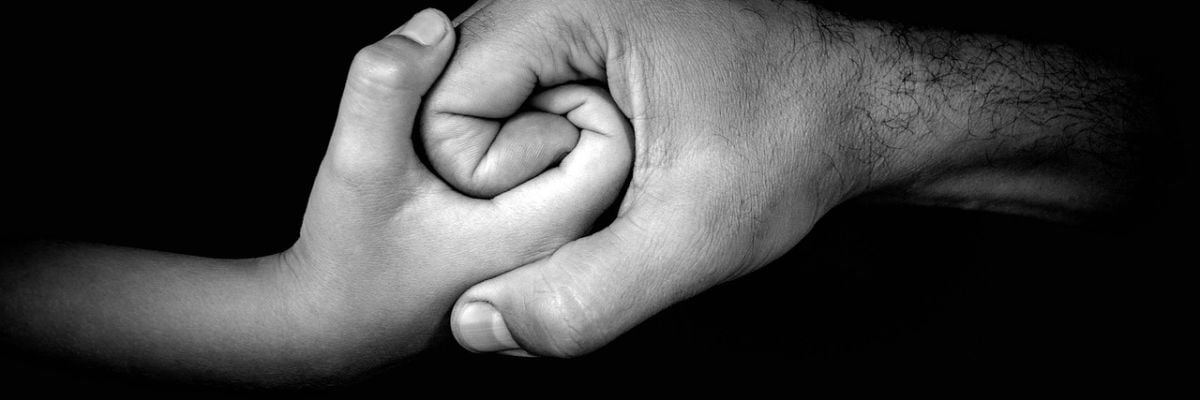
Fr. David Michael Moses discusses the “cartoonish” masculinity presented by social media today and how he wishes to combat it with a Christ modeled masculinity for his viewers.
Transcript:
I think one thing that gets kind of lost today is this idea of greatness. Sometimes it gets sort of framed as the kind of the Andrew Tate worldly, have the cars and the mansions as greatness. But really greatness is knowing the person of Jesus Christ. And that’s where the joy comes from ultimately. And that’s what we’re searching for.
So, you know, I heard it quote recently, “the magic that you’re looking for is in the things that you’re avoiding”. And I think the world so often puts out there, the pleasure and the status and the comfort and all those things. And that’s not really what we’re looking for. Like that’s not really what we want. The magic we’re looking for, not magic in the world, it’s not magic, but magic, like the meaning and the peace and the joy and the purpose. The magic is usually in the things that we’re avoiding, which is suffering, self-denial, taking up the cross. These are the things that actually give purpose to our lives. And so I think it is about with young people, especially saying, No sacrifice and suffering or not the worst evil to be avoided, which is what the world says. It’s actually like pushing through these things on the other side of some of that sacrifice is really going to be everything that you actually long for in life. And what is that actually you’re going to find there is the person of Jesus Christ.
I’m interested in what you said there about Andrew Tate because there is a kind of, there’s all this talk about masculinity for the last, I don’t know, 15 or 20 years. And it’s clear to me as an old man that the reason we have all this talk about masculinity is that fathers abandon their children. They left the home that we have millions and millions of people who grew up without their father in their home. So nobody knows what a man is supposed to be because nobody had that. Now that’s obvious to me, it may not be obvious to you, but it may be you disagree with it. But this obsession with masculinity because of the missing father is a deep wound. And a lot of young men are being seduced into a really cartoonish image of masculinity.
And so is, do you, I mean, the masculinity that you’re proposing and that you’re living out and that you’re showing is a masculinity of service ,of noble service, of loving, which is to me. I mean, Jesus is the most perfect man. He’s the image of manhood. How does he live? He lives a life of, I mean, he’s tough. He doesn’t, he’s not intimidated by anybody. He says the most dangerous things you can say. He’s not afraid, but none of it is in service of showing, making a great clip for a video. It’s all in service of the poor, the suffering.
I just want you to say something about that. Are you self-conscious about that? Are you intentionally trying to present a different view of manhood?
I think that’s very, very well said on your part that, you know, I did ministry in a juvenile detention center as part of my time in seminary. And so a lot of men, you know, young men, 11 to 18, who have gone, you know, committed some kind of crime. And I don’t think I met a single guy whose father was present in his life.
And it was just so clear the correlation between not having a father and ending up completely lost. You know, and now he was incarcerated. And so I think you’re very right that there’s this struggle to find masculinity because we haven’t had the right examples.
And just how beautiful right, in the church that we have. One we call God father, right? Like God is trying to provide for us that fatherhood. And the church is trying to provide priests in every parish that we call father. Like in some ways, I think God anticipated that need that void. And it’s trying to provide good fathers for his people.
And just as you said, that example absolutely is Christ, who is, you know, Jesus on the cross is not a weak man. Right? The fact that he could endure that it was a very strong man. And that’s what exactly. That’s what true masculinity, true greatness actually looks like. Is that kind of laying down your life for the bride, for the church, for the one that you love.
Well, I partly asked you that because I saw a wonderful response video you did to Mark Driscoll, a Protestant pastor who. I won’t use polite words if I try to describe how he described manhood, but just awful pathetic view of manhood. And then you responded to it.
The modern world has invented this new thing called the response video. And I want to know what first of all, if anybody doesn’t know what the response video is, explain it and then tell us what role it plays in your work.
Yeah, so I would just say always with social media, again, it’s a language, it’s a culture that you have to learn to speak. For me, it’s always about just presenting the gospel, but some things connect better than others in terms of trying to connect the people with the gospel.
So for me with like Instagram and short form videos, what I found is like humor seems to connect very well. It’s a very universal language, especially with younger generation. So I said, okay, I didn’t set out to try to make funny videos at all. I just set out to connect the gospel and it looked like humor was a extremely effective way of doing it.
And with longer form videos like YouTube and stuff that you’re kind of referring to, that the reaction videos, you could just post a nice reflection from today’s readings, right? You could definitely do that. That would be good and true and beautiful, but people may not watch it. It might kind of get lost a lot of different things.
I think the value of like the reaction video is you take something current in the culture. You kind of present that as a point of engagement, like a common subject with the listener. And then you are able to attach onto that something very tried and true about the gospel or about the sacraments and sort about the faith.
And I think even Jesus kind of does this when he preaches, he says, you’ve heard it said, but I say to you, there’s something deeply theological there. But he’s basically offering a reaction to something that the listener has already heard that they know that the people are not going to be able to do that. And he’s heard that they know that kind of peaks their interest and then he kind of is able to flesh out that with something good and something beautiful on the tail end. So I think the reaction video is kind of simple. You guys have heard about this new story, right? And I say to you, there’s some this and this and what as well.
So I think at face value it can look like, or we just, you know, we just, you know, spurting out the news here, but really the deeper message that I think comes across really effectively is that this is a vehicle for teaching the faith.
So what are the maybe limits like you’re a priest, you know, you’re not going to make a video where you’re like, look at what this clown had to say, you know, and really, you know, tear into somebody even though I know on some of them that’s what you wanted to say. Well, all right, maybe I’m projecting, but so I mean, how does a priest approach these kind of reactions, but it is well, in some cases you’re correcting what someone has said in some cases you’re pointing out, you know, flaws in the reasoning in order to make the point.
Yeah, so I think we always want to be respectful of the person right, we always want to be respectful of the dignity that they have. So obviously trying to avoid any kind of personal attacks. But I think it’s a good father is going to help make distinctions for their children. So I think it’s spiritual fathers. It’s worth talking about some of these things in the culture and drawing distinctions about what the truth is about what’s right, you know, charity is clarity as we say. I think clarity for God’s people and some of these things is not just okay, but actually very, very appropriate from a father. Not everybody’s called to make videos right at all, but I think for some, you know, who are called to that, it makes a lot of sense as a father figure.



